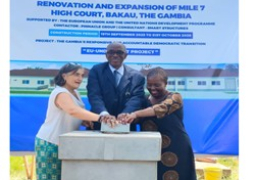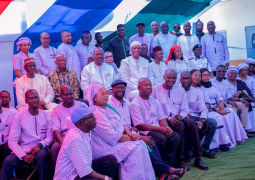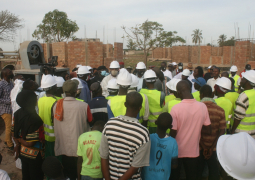
The study, commissioned by the National Human Rights Commission (NHRC) with support from UNDP and OHCHR, paints a sobering picture of a transitional justice process that has achieved milestones in truth-telling but now risks losing public confidence.
The survey engaged 746 respondents across the country, with 84 per cent identifying as direct victims of Jammeh-era human rights violations. Almost every participant described their experience as “devastating” or “highly devastating”, underscoring the deep scars left by years of abuses.
Victims made clear that justice for them means more than apologies: they called for reparations, medical and psychosocial support, and prosecutions of those responsible. Many insisted that without accountability, reconciliation will remain incomplete.
Despite the Government’s White Paper accepting most of the TRRC’s recommendations, trust levels remain alarmingly low. Nationally, only 31 per cent of respondents expressed confidence that justice would be delivered, while 69 per cent said they had no trust in the process.
The distrust was sharpest in the Greater Banjul Area (89 per cent) and Central River South (91 per cent), where victims accused the Government of failing to act on promises. Many said information on progress was scarce, forcing them to rely on civil society and the media for updates.
One participant in the North Bank Region summed it up bluntly: “The implementation is not transparent. We hardly get information from the Government.”
The survey also revealed frustration with judicial reforms linked to the TRRC. Only 34 per cent of respondents expressed satisfaction, while a majority described the reforms as slow, inadequate, or disappointing.
In Central River North, perceptions were sharply divided, with 52 per cent dissatisfied but 48 per cent satisfied indicating a polarised public view of the judiciary’s performance.
The study noted that two-thirds of respondents felt the TRRC Implementation Plan had addressed the needs of women and girls, particularly survivors of sexual and gender-based violence. However, many still call for stronger livelihood support and counseling services.
Geographically, the survey had wide coverage, with the majority of participants coming from rural areas. This rural weight highlights the need for outreach and reparations programs that do not remain concentrated in urban centres.
The report concludes that The Gambia’s transitional justice process is at a critical stage. While the TRRC gave victims a voice and broke new ground in truth-telling, delays and weak institutional coordination have left many Gambians disillusioned.
The NHRC and its partners stressed that rebuilding trust will require greater transparency, inclusive communication, and tangible progress on reparations and prosecutions. Without these steps, the survey warns, the gap between victims’ expectations and state delivery could undermine both reconciliation and democratic consolidation.
Read Other Articles In Headlines
Shopkeeper arrested for murder in URR
Oct 19, 2020, 11:31 AM




